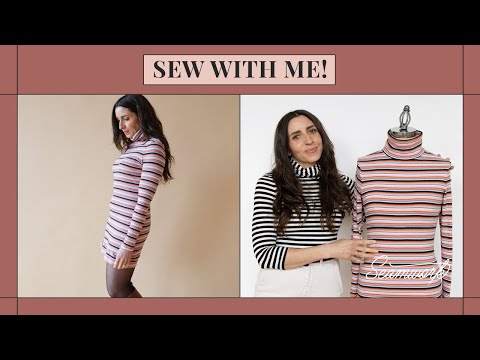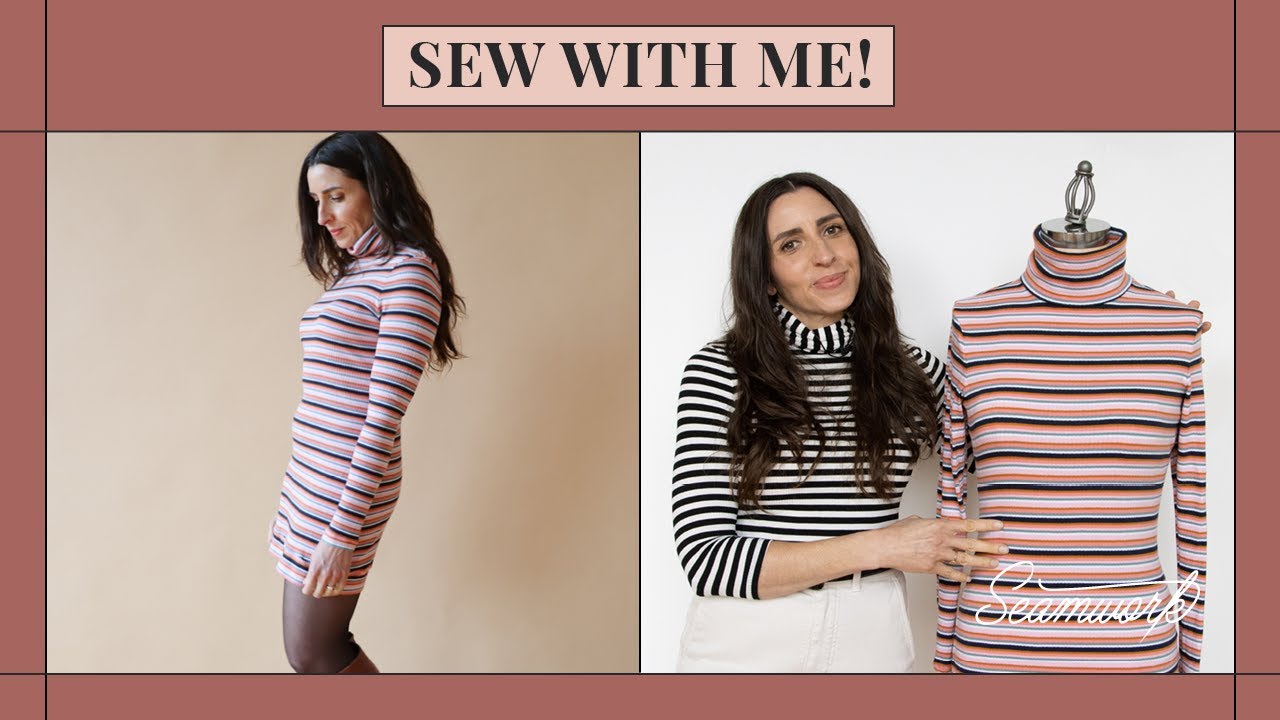Discover the versatile and trendy world of rib knit fabric. Soft, stretchy, and durable, this fabric is perfect for creating stylish garments and cozy accessories. With its distinct ribbed texture, rib knit fabric adds depth and interest to any design. Whether you’re a fashion enthusiast or a DIY enthusiast, this fabric is a must-have in your collection. Its soft and supple feel against the skin will keep you comfortable all day long, while its excellent stretchiness ensures a flattering fit for any body shape. The durable nature of rib knit fabric makes it ideal for creating long-lasting creations that can withstand regular wear and washing. From trendy sweaters and cardigans to chic beanies and scarves, the possibilities are endless with rib knit fabric. Its versatility allows you to experiment with various styles and designs, making it a favorite among fashion designers and crafters alike. So, dive into the world of rib knit fabric and let your creativity soar as you create fashionable and comfortable pieces that will make a statement wherever you go.

Rib Knit Fabric: A Versatile and Comfortable Textile
When it comes to fabrics, there are numerous options available in the market today. Each fabric has its own unique characteristics and uses. One such fabric that stands out for its versatility and comfort is rib knit fabric. Whether you are a fashion enthusiast or a textile connoisseur, it is important to understand the properties and benefits of rib knit fabric.
What is Rib Knit Fabric?
Rib knit fabric is a type of textile that is characterized by its distinct vertical ridges or “ribs.” It is commonly used in the production of garments such as t-shirts, sweaters, and socks. The fabric is made by alternating knit and purl stitches, creating a pattern of raised parallel lines.
Rib knit fabric is known for its elasticity, which allows it to stretch and conform to the body. This makes it a popular choice for clothing items that need to be form-fitting and comfortable. Additionally, the fabric has a unique texture that adds visual interest to any garment.
The Properties of Rib Knit Fabric
Rib knit fabric has several properties that make it a desirable choice for clothing manufacturers. Here are some of the key characteristics of rib knit fabric:
1. Stretchability: Rib knit fabric has excellent stretchability, allowing it to comfortably fit different body shapes and sizes. This makes it ideal for creating garments that require flexibility and movement.
2. Breathability: The construction of rib knit fabric creates small air pockets, allowing for better airflow. This makes the fabric breathable and perfect for warm weather garments.
3. Durability: Due to its unique construction, rib knit fabric is highly durable and resistant to tearing. It can withstand regular wear and washing without losing its shape or integrity.
4. Versatility: Rib knit fabric can be made from various materials, including cotton, polyester, wool, and blends. This versatility allows for a wide range of applications and makes it suitable for different climates and seasons.
5. Easy care: Another advantage of rib knit fabric is its low maintenance. Most rib knit garments can be machine washed and dried without requiring special care instructions.
Applications of Rib Knit Fabric
Rib knit fabric is widely used in the fashion industry due to its versatility and comfort. Here are some common applications of rib knit fabric:
1. Clothing: Rib knit fabric is commonly used to make t-shirts, tank tops, dresses, sweatshirts, and other apparel. Its stretchability and soft texture make it ideal for close-fitting garments.
2. Undergarments: Due to its elasticity, rib knit fabric is often used in the production of underwear, bras, and socks. It provides a snug fit and helps garments stay in place.
3. Accessories: Rib knit fabric can also be used to create accessories such as scarves, hats, and gloves. Its warmth and stretch make it suitable for winter wear.
4. Home decor: Rib knit fabric is not limited to clothing; it can also be used in home decor. It can be used for upholstery, pillow covers, and blankets to add texture and visual interest to any space.
5. Sportswear: Many sportswear brands utilize rib knit fabric in the production of athletic clothing. Its stretchability allows for a full range of motion, making it perfect for activewear.
Caring for Rib Knit Fabric
Proper care is essential to maintain the quality and longevity of rib knit fabric garments. Here are some tips to help you care for your rib knit items:
1. Follow care instructions: Always check the care label on your garment for specific instructions. Some rib knit fabrics may require special care, such as hand washing or air drying.
2. Wash with similar colors: To avoid color bleeding or fading, wash your rib knit garments with similar colors. This will help preserve the vibrancy of the fabric.
3. Use gentle detergents: Opt for mild and gentle detergents when washing rib knit fabric. Harsh chemicals can damage the fibers and affect the fabric’s elasticity.
4. Avoid excessive heat: High temperatures can shrink or deform rib knit fabric. It is best to air dry or use low heat settings when drying your garments.
5. Store properly: To prevent stretching or distortion, fold your rib knit garments instead of hanging them. Store them in a dry and cool place to maintain their shape.
In Conclusion
Rib knit fabric is a versatile and comfortable textile that offers numerous benefits. Its stretchability, breathability, and durability make it a popular choice in the fashion industry. Whether you are looking for clothing, accessories, or home decor, rib knit fabric provides a wide range of possibilities. By following proper care instructions, you can ensure that your rib knit garments maintain their quality and last for a long time.
“Crafting a Chic Rib Knit Dress: Top 5 Tips Included!”
List about Rib Knit Fabric
Rib Knit Fabric
Rib knit fabric is a popular textile known for its unique characteristics and versatile uses. It is a type of knitted fabric that features raised vertical lines or ribs on both sides, creating a distinctive woven appearance. This fabric is commonly used in the fashion industry for various applications due to its stretchability, durability, and comfort.
| Properties | Advantages |
|---|---|
| Elasticity: | Rib knit fabric has excellent stretchability, allowing it to conform to the body’s contours and provide optimal comfort. This makes it ideal for garments that require flexibility, such as activewear, loungewear, and fitted clothing. |
| Durability: | Due to its tightly woven construction, rib knit fabric is known for its exceptional durability. It can withstand frequent washing, stretching, and general wear and tear without losing its shape or integrity, ensuring longevity for the garments made from it. |
| Thermal Regulation: | The rib structure of this fabric creates air pockets that enhance its thermal insulation properties. It helps to keep the body warm during colder seasons while also allowing breathability, making it suitable for various weather conditions. |
| Textured Appearance: | The raised vertical lines or ribs on rib knit fabric give it a visually appealing and textured appearance. This adds depth and interest to garments, making them more visually appealing and fashionable. |
| Versatility: | Rib knit fabric is highly versatile, making it suitable for a wide range of applications. It is commonly used for making t-shirts, dresses, skirts, sweaters, cuffs, collars, and other clothing items that require both comfort and style. |
Overall, rib knit fabric is a go-to choice for many designers and manufacturers in the fashion industry. Its unique properties, such as elasticity, durability, thermal regulation, textured appearance, and versatility, make it a favored fabric for creating comfortable and fashionable garments.

